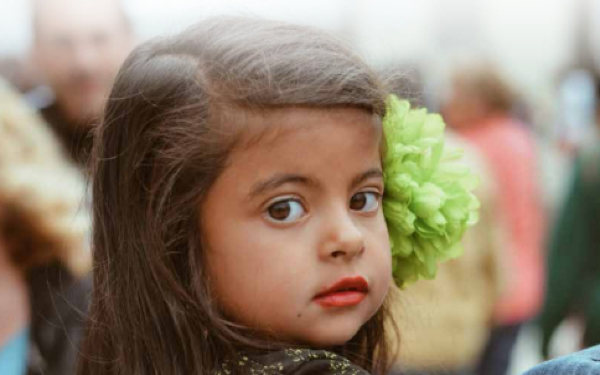
By Dr Joanna Kostka and Mihai Calin Bica
Imagine receiving a letter you can’t understand, from an authority you don’t trust, about your child’s future. For many Roma families in England, this is not just a scenario – it’s their reality.
This recently published report, Come to Us in a Peaceful Way, explores the experiences of Roma families navigating the complex world of children’s services in England.
This research, a collaboration between Advicenow (formerly Law for Life), Lancaster University and Anglia Ruskin University, delves into the lived experiences of Roma families, social care professionals and legal experts. It examines care proceedings cases that involve Roma families and policies spanning the past 15 years, bringing to light the structural issues that shape interactions between Roma families and children’s services.
A focus on Roma migrants
Uniquely, this report focuses on Roma migrants who have settled in the UK since the 1990s, rather than the broader Gypsy, Roma, and Traveller (GRT) communities. The GRT category is often used as an umbrella term, grouping together diverse communities with distinct cultural and ethnic identities. Although they share some common experiences – particularly histories of oppression and discrimination across Europe – the challenges they face in the UK are not identical.
By concentrating on Roma migrants, the report highlights their specific barriers and unique experiences, including linguistic challenges, digital exclusion and economic hardship. This focused approach provides a more nuanced understanding of their interactions with children’s services. It moves beyond generalised narratives, offering insights that are crucial for social workers seeking to enhance their professional practice, rebuild trust and foster better outcomes for Roma families.
A legacy of mistrust and misunderstanding
Roma families’ experiences with children’s services are deeply influenced by a history of trauma and persecution. Centuries of discrimination across Europe – including forced sterilisations and widespread social exclusion – have created deep-seated mistrust in authority figures, including social workers. This historical context isn’t just background noise; it permeates every interaction, shaping how Roma parents perceive child protection investigations.
In England, these experiences are further complicated by societal prejudices, austerity measures and immense pressures on social workers to meet conflicting demands. One of the critical insights from the report is the complex relationship between poverty and child protection interventions.
Poverty is not neglect
Economic hardship is an undeniable reality for many Roma families, but poverty should not be confused with parental neglect. The report highlights that Roma communities are disproportionately affected by rising child poverty in the UK, driven by structural inequalities, digital exclusion and restrictive immigration policies.
These socio-economic challenges often mean that Roma parents struggle to meet certain expectations, not due to lack of care or responsibility, but because of systemic barriers that limit their access to resources and support.
Crucially, the report emphasises that misinterpreting poverty as neglect risks unfairly targeting vulnerable families and exacerbating their mistrust of children’s services.
Social workers who understand this complexity are better positioned to provide the necessary support without reinforcing harmful stereotypes. By recognising the socio-economic contexts in which Roma families live, practitioners can build more effective and empathetic interventions, bridging the gap between services and communities.
Communication and linguistic barriers
One of the most significant barriers Roma families face when engaging with children’s services is communication. For many Roma families, Romanes is their first language. However, in social work and legal settings, interpreters often speak only their second or third languages, such as Slovakian, Romanian or Czech.
Most interpreters are not from the Roma community and may lack an understanding of Roma culture and experiences. As a result, misinterpretations and incorrect assumptions frequently arise, often to the detriment of Roma families.
Overreliance on written communication, particularly formal documents filled with legal and professional jargon, further complicates engagement. Many key concepts in child protection and legal proceedings may not have direct equivalents in Romanes or other languages spoken by Roma families. As a result, misunderstandings can occur at critical moments, affecting parents’ ability to navigate the system and advocate for their children effectively.
A professional interviewed in the report highlighted a common issue with court documents provided to Roma families:
“Roma families often receive translated court documents in a language they can partially read but not fully understand. This leads professionals to assume comprehension when, in reality, key legal terms may be misinterpreted. They may only grasp certain sentences or words and attribute incorrect meanings – especially when complex legal language is used. For example, parents may sign an agreement without fully understanding its legal consequences, yet this document is taken very seriously in court.”
Fostering cultural understanding
Such linguistic barriers can have serious consequences. In one case examined in the report, the lack of a suitable interpreter led to a 16-month delay in court proceedings. During this time, the children remained in foster care and, as a result, lost the ability to communicate with their birth parents in their native language, requiring interpreters even for family interactions.
These challenges aren’t just about words – they reflect deeper cultural and systemic barriers. Expectations around parenting discipline, and family structures vary across cultures, and direct translations often fail to capture these nuances.
Social workers must go beyond literal language interpretation by fostering cultural understanding and ensuring that Roma families receive interpretation services that genuinely reflect their linguistic and cultural needs. Addressing these barriers is not just a matter of convenience – it is essential to ensuring fair and just outcomes for Roma children and their families.
Feeling excluded from decision making
The report finds that low legal capability and digital exclusion are significant challenges for Roma families. Many parents struggle to navigate or even understand the child protection process.
This knowledge gap leaves them vulnerable to poor practices and without the confidence to challenge decisions. As a result, many families felt powerless and excluded from decisions about their own children.
In contrast, the report highlights that those parents who had access to support from community organisations seemed more empowered, and spoke about their rights, including the right to challenge or request a change of an interpreter or a social worker.
This shows the value of community support and importance of public legal education that draws upon community strengths such as oral storytelling and reliance on support within wider family networks.
Lack of placements and representation
Perhaps one of the most concerning findings is the scarcity of kinship and foster care placements within Roma communities. When Roma children are placed with non-Roma families, their cultural identity is at risk of being lost. The report stresses that preserving a child’s cultural heritage isn’t just about tradition – it’s about emotional and psychological wellbeing.
Support for foster carers looking after Roma children is crucial to helping them maintain their identity, connections and a sense of belonging. Social workers play a pivotal role in facilitating this, ensuring that children grow up knowing who they are and where they come from.
Yet, while cultural identity is critical for Roma children, the system currently lacks Roma voices within it. Very few Roma people are employed as social workers, family support workers, or cultural mediators, and there are limited services that specialise in working with Roma families.
This lack of representation contributes to a disconnect between services and communities, making it harder to build trust and deliver support that reflects Roma experiences and values.
Towards better practice: what works
Despite the challenges, the report highlights examples of good practice where social workers approached their role with empathy, cultural awareness and a commitment to community-based social work.
Community champions – trusted figures within the Roma community – have been instrumental in bridging communication gaps. By working alongside these cultural mediators, social workers were able to build relational trust and foster mutual understanding. This approach helped reduce fear and anxiety, enabling families to engage more openly and positively.
Another successful strategy was public legal education, tailored to the specific needs of Roma families. When parents understood their rights and responsibilities, they were more empowered to engage with social services, creating a more balanced power dynamic.
Recommendations for social workers
To improve outcomes for Roma families, the report recommends:
- Cultural competency training: social workers need to understand the historical context, cultural norms and communication styles of Roma families. Empathy starts with education.
- Community-based social work: collaborating with trusted community figures can facilitate better communication and culturally sensitive interventions.
- Anti-discriminatory practice: reflecting on personal biases and actively working against discriminatory practices is essential.
The report also emphasises the need for systemic change. This includes:
- Better data collection: to accurately understand the involvement of Roma families in children’s services, data needs to be culturally sensitive and clearly disaggregated.
- Roma inclusion strategy: a national strategy is crucial to address ongoing discrimination, poverty and social exclusion faced by Roma communities.
Safeguarding trust, identity and community
The title of the report, Come to Us in a Peaceful Way, is more than just a phrase. It’s a plea from Roma families for respect, understanding, and compassion. It’s a reminder that social work isn’t just about safeguarding children – it’s about safeguarding trust, identity, and community.
For social workers, this report is a call to action. It challenges practitioners to move beyond stereotypes, to listen with empathy, and to advocate for systemic change. By embracing its recommendations, social workers have the opportunity to be agents of positive change for one of the most marginalised communities in England.
Dr Joanna Kostka is lecturer in social work at Lancaster University. Her research interests include minority issues (with a specific focus on Roma inclusion) theories of migration, participatory action research and community development
Mihai Calin Bica is a Romanian Roma advocate and activist. He qualified as a social worker in July 2009. He is policy and campaigning co-ordinator at the Roma Support Group, which involves influencing local, regional and national policies that affect the lives of Roma people in the UK







 Bournemouth, Christchurch and Poole
Bournemouth, Christchurch and Poole  Hampshire County Council
Hampshire County Council  Oxfordshire County Council
Oxfordshire County Council  South Gloucestershire Council
South Gloucestershire Council  Wokingham Borough Council
Wokingham Borough Council  The highs and lows of a children’s services’ transformation journey
The highs and lows of a children’s services’ transformation journey  Embedding learning in social work teams through a multi-agency approach
Embedding learning in social work teams through a multi-agency approach  The family safeguarding approach: 5 years on
The family safeguarding approach: 5 years on  Harnessing social work values to shape your career pathway
Harnessing social work values to shape your career pathway  Workforce Insights – showcasing a selection of the sector’s top recruiters
Workforce Insights – showcasing a selection of the sector’s top recruiters  Free CPD on Parkinson’s for health and social care staff
Free CPD on Parkinson’s for health and social care staff 

 Facebook
Facebook X
X LinkedIn
LinkedIn Instagram
Instagram
No comments yet.